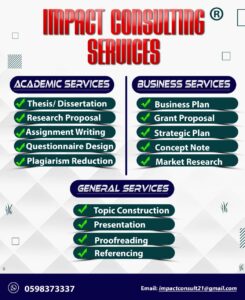Common Mistakes to Avoid During Writing Masters Thesis in 2024

Introduction
In the academic journey, especially in 2024, writing a masters thesis stands as a crucial milestone. This extensive piece of scholarly work not only marks the culmination of years of study but also significantly contributes to your field. A master’s thesis demonstrates your ability to conduct in-depth research, synthesise information, and present new insights. It’s a testament to your dedication, intellectual rigour, and scholarly potential. In essence, a well-crafted thesis can be a launching pad for your academic and professional career, opening doors to further research opportunities, advanced studies, or specialised employment.
As we delve into the intricacies of crafting a masters thesis, it’s essential to be aware of the common pitfalls that many will face in 2024. These mistakes in writing a master’s thesis can range from structural flaws to conceptual oversights. Common issues include overreaching the scope of the study, vague objectives, a lack of coherent structure, insufficient literature review, methodological errors, and overlooking the importance of thorough editing and feedback. In the rapidly evolving academic world of 2024, staying vigilant against these pitfalls is more crucial than ever. This guide aims to equip you with the knowledge and strategies to navigate these challenges effectively, ensuring your thesis stands as a robust and valuable contribution to your field.
Overreaching Scope and Ambitions in Writing Masters Thesis
A. Defining an Overambitious Scope
In the journey of crafting a masters thesis in 2024, setting an overambitious scope is a common misstep. An overambitious scope typically means trying to cover too much ground or tackling a topic that’s too broad or complex for the constraints of a master’s programme. This approach can lead to an unfocused thesis, where the core objective becomes diluted and the research becomes too generalised or superficial. In the worst-case scenario, it could result in a project that’s impossible to complete within the allotted timeframe or with the available resources.
B. Strategies to Narrow Focus and Set Realistic Goals
Avoiding the mistake of an overambitious scope requires careful planning and self-awareness. Here are some strategies to help:
1. Define Clear Objectives: Start by defining clear, specific objectives. What exactly do you want to achieve with your thesis? Keeping the objectives focused will help in maintaining a tight scope.
2. Consult with Advisors: Regular consultations with your thesis advisor or mentors can provide valuable insights. They can help you gauge if your scope is manageable and suggest ways to refine it.
3. Conduct preliminary research: Before finalising your topic, conduct preliminary research. This can reveal how much information is available and how deeply you can realistically delve into the topic.
4. Be realistic about time and resources: Consider the time you have and the resources at your disposal. If your topic requires extensive travel, funding, or time that you don’t have, it might be wise to reconsider.
5. Focus on a Specific Aspect: Instead of trying to cover a topic in its entirety, focus on a specific aspect or angle. This approach will allow for more depth in your research.
6. Set Achievable Milestones: Break down your thesis into smaller, achievable milestones. This makes the project more manageable and helps keep your research focused.
Overall, avoiding the mistake of an overambitious scope in your master’s thesis in 2024 is about striking a balance. It requires a clear understanding of your research objectives, a realistic assessment of resources, and a focused approach. By setting realistic goals and narrowing your focus, you can ensure that your thesis is both manageable and academically robust.

Avoiding the Pitfall of Lack of Clear Objectives and Direction in Writing Masters thesis
A. The Necessity of Precise Objectives
A common mistake in writing a masters thesis in 2024 is the lack of clear objectives and direction. Precise objectives are the backbone of any thesis. They give your research clear focus and direction. Without them, your study can become disjointed and lack depth. Clear objectives guide your research methods, inform your literature review, and shape the analysis of your findings. They are essential for maintaining a coherent narrative throughout your thesis.
B. Tips for Formulating Clear Research Questions and Goals
To avoid this common mistake in your master’s thesis in 2024, here are some tips for formulating clear research questions and goals.
1. Start with Broad Research: Initially, explore your topic broadly to understand its various aspects. This will help you identify specific areas that interest you.
2. Narrow Down Your Focus: From your broad research, pinpoint a specific aspect that you find most compelling. This helps in focusing your objectives.
3. Seek Inspiration from Existing Literature: Review existing literature to find gaps or unanswered questions. These can form the basis of your research questions.
4. Be Specific and Measurable: Make your objectives as specific and measurable as possible. Avoid vague language that could lead to multiple interpretations.
5. Ensure Feasibility: Your objectives should be realistic and achievable within the scope of a master’s thesis. Consider the time and resources available to you.
6. Seek Feedback: Discuss your proposed research questions and objectives with your advisor or peers. They can provide valuable feedback and help you refine them.
7. Align with Academic Standards: Ensure that your objectives align with the academic standards and expectations of your field in 2024.
8. Write a Clear Thesis Statement: Craft a clear and concise thesis statement that encapsulates your main research question and objectives.
By following these tips, you can set clear, focused objectives and a strong direction for your master’s thesis in 2024. This clarity is crucial for developing a cohesive, well-structured, and impactful thesis.
Addressing the Mistake of an Inadequate Literature Review
A. Importance of a Comprehensive Literature Review
A crucial mistake to avoid when writing a master’s thesis in 2024 is conducting an inadequate literature review. The literature review is not just a formality; it’s a fundamental part of your thesis. It serves several key purposes:
1. Demonstrates Your Understanding: It shows your grasp of the topic and the current state of research in your field.
2. Identifies Research Gaps: A thorough review helps identify gaps in existing research, which can justify the need for your study.
3. Prevents Duplication: It ensures that you are not duplicating existing research but rather building upon or challenging it.
4. Guides Your Methodology: Understanding previous methods and their outcomes can guide your choice of methodology.
5. Frame your Research: It places your research within a broader academic context, showing how it contributes to the field.
B. Techniques for Conducting an Effective and Thorough Review
To avoid the mistake of an inadequate literature review in your master’s thesis in 2024, consider the following techniques:
1. Diversify Your Sources: Don’t rely solely on one type of source. Use a mix of books, peer-reviewed articles, conference papers, and other reputable sources.
2. Use Academic Databases: Utilise academic databases like JSTOR, PubMed, and Google Scholar for up-to-date and relevant literature.
3. Stay Current: Make sure your review includes recent publications to show that you are up to date with the latest research.
4. Organise Thematically: Group literature thematically or methodologically rather than chronologically for a more coherent structure.
5. Critically Analyze, Don’t Just Summarize: Engage critically with the literature, evaluating methodologies, findings, and arguments, rather than merely summarizing them.
6. Look for Contradictions and Debates: Highlighting contradictions and debates in the literature can underscore the need for your research.
7. Note Methodological Trends: Be aware of the evolving methodologies in your field to position your research appropriately.
8. Document as You Go: Keep meticulous records of your sources to facilitate easy referencing and avoid plagiarism.
A comprehensive and well-conducted literature review is critical to avoiding major mistakes in writing your master’s thesis in 2024. It lays the groundwork for your research, providing a solid foundation upon which to build your study. By following these techniques, you can ensure that your literature review is both thorough and effective, significantly contributing to the overall strength of your thesis.
Overcoming Poor Methodological Planning: Mistakes in Writing Masters Thesis
A. Understanding the Role of Methodology in Research
In the process of writing a master’s thesis in 2024, the methodology is not just a section of your paper; it is the backbone of your entire research. It outlines how you will conduct your study and is crucial for ensuring the validity and reliability of your results. A well-planned methodology:
1. Defines Your Approach: It specifies whether your research is qualitative, quantitative, or mixed-methods.
2. Guides Data Collection: It determines how you will gather data, whether through experiments, surveys, interviews, or other means.
3. Shapes Data Analysis: It describes how you will analyse the data collected to answer your research question.
4. Ensures Credibility: A robust methodology strengthens the credibility of your findings, making your thesis more persuasive.
B. Common Errors in Methodological Approaches and How to Avoid Them
To avoid methodological mistakes in your master’s thesis in 2024, be mindful of the following common errors and tips on how to avoid them:
1. Lack of Alignment with Objectives: Ensure that your methodology directly aligns with your research objectives and questions.
2. Inadequate Description: Provide a detailed and clear description of your methods so others can replicate your study if needed.
3. Ignoring Alternative Methods: Discuss why you chose a particular method over others, acknowledging the pros and cons of your choice.
4. Overlooking Ethical Considerations: Address any ethical concerns related to your research, especially if involving human subjects.
4. Failure to Anticipate Challenges: Identify potential obstacles in your methodology and how you plan to address them.
5. Neglecting the Importance of Pilot Studies: If applicable, conduct a pilot study to test your methods and make necessary adjustments.
6. Overcomplicating the Methodology: Keep your methodology straightforward and avoid unnecessary complexity that could muddle your research.
7. Not Reviewing Current Methodological Trends: Stay updated with the latest methodological advancements in your field to ensure your approach is relevant and current.
By thoroughly understanding the role of methodology and avoiding these common errors, you can significantly enhance the quality of your master’s thesis in 2024. A well-planned and executed methodology not only strengthens your research but also bolsters the overall credibility and impact of your thesis.
Navigating the Pitfall of Ignoring Structured Argument in Master’s Thesis Writing in 2024
A. Building a Coherent and Logical Narrative
One of the critical mistakes in writing a master’s thesis in 2024 is the failure to build a structured argument. A thesis should not be a collection of random thoughts or disjointed facts. It needs to be a coherent and logical narrative that guides the reader through your research journey. A well-structured argument:
1. Introduces Your Thesis: Clearly state your thesis or main argument in the introduction.
2. Links All Parts Together: Ensure each chapter or section logically flows from the one before.
3. Supports Your Thesis: Every part of your thesis should support or contribute to your main argument.
4. Leads to a Conclusive End: Your conclusion should neatly tie all your arguments together, reinforcing your thesis.
B. Techniques for Ensuring Consistency and Flow in Your Thesis
To avoid the mistake of an unstructured argument in your master’s thesis in 2024, consider the following techniques:
1. Create an Outline: Before you start writing, outline your thesis. This will serve as a roadmap and help maintain focus.
2. Use Transition Words and Phrases: Transition words help in smoothly moving from one idea to another, maintaining the flow of your argument.
3. Regularly Review Your Argument: As you write, regularly step back and review your work to ensure it remains coherent and consistent.
4. Link Chapters and Sections: Start each chapter or section by connecting it to the previous one and hinting at what is coming next.
5. Use Headings Wisely: Clear and descriptive headings can guide the reader through your argument.
6. Seek Feedback: Regularly show your work to your advisor or peers for feedback on the clarity and flow of your argument.
7. Revise for Clarity and Cohesion: After completing your first draft, revise to improve clarity, ensuring each part contributes to your overall masters thesis.
8. Read Aloud: Sometimes, reading your work aloud can help you catch disjointed or unclear parts.
By focusing on building a structured argument and employing these techniques, you can avoid one of the most common mistakes in writing a masters thesis in 2024. A well-structured thesis not only demonstrates your academic rigour but also makes your research more persuasive and impactful.
Addressing the Mistake of Underestimating Revisions and Feedback
A. The Iterative Process of Writing and Revising
One of the significant mistakes in writing a master’s thesis in 2024 is underestimating the importance of revisions and feedback. Writing a masters thesis is not a linear process; it is iterative. This means that writing and revising are ongoing processes that work hand-in-hand. A good thesis is not written but re-written. Revisions help in refining your arguments, clarifying your points, and strengthening the overall quality of your research. Remember:
1. Revision is Continuous: Consider each draft as a step closer to your final version, not as a final product.
2. Focus on Different Aspects: In each revision, focus on different aspects – content, flow, clarity, grammar, etc.
3. Allow Time for Revising: Allocate sufficient time in your schedule for multiple rounds of revisions.
B. Seeking and Incorporating Feedback Effectively
Feedback is an invaluable part of the thesis writing process. It provides you with perspectives other than your own and can highlight areas you may have overlooked. To incorporate feedback effectively:
1. Seek Diverse Opinions: Get feedback from your advisor, peers, and possibly experts in your field.
2. Be Open-Minded: Be receptive to critiques and suggestions. Don’t take feedback personally.
3. Actively Apply Feedback: Actively work to incorporate the feedback into your revisions.
4. Follow Up on Feedback: If unclear, follow up with the person providing feedback for clarification.
Tackling Procrastination and Time Management in Masters Thesis Writing in 2024
A. The Dangers of Procrastination in Thesis Writing
Procrastination is a common pitfall in the process of writing a master’s thesis. It can lead to unnecessary stress, rushed work, and lower quality of the final product. Procrastination often results in:
1. Compromised Quality: Rushed work in the end can significantly compromise the quality of your thesis.
2. Increased Stress: Delaying work can lead to increased anxiety and stress as deadlines approach.
3. Missed Opportunities for Feedback: Procrastination can mean missing out on the opportunity to get and incorporate feedback.
B. Time Management Strategies for Successful Thesis Completion
Effective time management is crucial to avoid the mistake of procrastination in your master’s thesis in 2024. Here are some strategies:
1. Set Realistic Goals: Break your thesis into smaller, manageable tasks with achievable goals.
2. Create a Timeline: Develop a timeline with milestones to track your progress.
3. Use a Planner: Keep a planner or digital calendar to organize your tasks and deadlines.
4. Regular Work Sessions: Set aside regular time slots for thesis work to build a routine.
5. Avoid Multitasking: Focus on one task at a time to improve efficiency and quality.
6. Reward Progress: Set up a system of rewards for meeting small milestones to stay motivated.
By recognizing and addressing the mistakes of underestimating the need for revisions and feedback, and by effectively managing your time and avoiding procrastination, you can significantly enhance the process of writing your master’s thesis in 2024. These strategies not only ensure a smoother writing process but also contribute to the overall quality and success of your thesis.
The Consequences of Neglecting Formatting and Presentation Guidelines in Masters Thesis Writing in 2024
A. Importance of Adhering to Institutional Guidelines
A common mistake in writing a master’s thesis in 2024 is overlooking the importance of formatting and presentation guidelines. These guidelines are not arbitrary; they are crucial for several reasons:
1. Professionalism: Proper formatting reflects the professionalism and academic rigor of your work.
2. Readability: Well-formatted work is easier to read and understand.
3. Consistency: Adhering to guidelines ensures consistency in academic writing, which is critical for scholarly communication.
4. Evaluation Criteria: Often, adherence to formatting guidelines is a part of the evaluation process.
B. Tips for Ensuring Proper Formatting and Presentation
To avoid this mistake in your master’s thesis in 2024, follow these tips:
1. Understand the Guidelines: Before you start writing, thoroughly understand your institution’s formatting guidelines.
2. Use Template If Available: If your institution provides a template, use it to simplify the process.
3. Pay Attention to Details: Be meticulous about margins, spacing, font size, citation style, and headings.
4. Regularly Check Formatting: Throughout your writing process, regularly check and adjust your formatting.
5. Use Software Tools: Utilize word processing tools and software that can help in maintaining consistent formatting.
6. Proofread for Formatting: In your final review, specifically check for formatting errors.
Additional Resources for Masters Thesis Writing in 2024
A. Recommended Books and Articles for Further Reading
To further aid in your masters thesis writing journey, consider the following resources:
1. The Elements of Style” by Strunk and White – a classic guide to writing in English.
2. How to Write a Lot: A Practical Guide to Productive Academic Writing” by Paul J. Silvia.
3. Writing Your Dissertation in Fifteen Minutes a Day” by Joan Bolker.
4. “The Craft of Research” by Wayne C. Booth, Gregory G. Colomb, and Joseph M. Williams.
B. Links to Online Forums and Workshops for Graduate Students
1. ResearchGate and Academia.edu: Engage with other researchers and find resources for thesis writing.
2. Graduate Writing Workshops: Many universities offer online workshops for thesis writing skills.
3. Online Writing Centers: Websites like the Purdue OWL offer guidelines on academic writing and formatting.
In summary, avoiding the mistake of neglecting formatting and presentation guidelines is crucial in your master’s thesis writing process in 2024. Proper formatting enhances the professionalism and clarity of your work, playing a significant role in its evaluation. Utilizing the additional resources can further guide and refine your writing process.
People also read:
Writing Masters Thesis Proposal: A Step-by-Step Guide
Tips for Writing Masters Thesis Introduction
Mastering the Writing of Master’s Thesis Introduction
Graduate Thesis Writing and Strategic Time Management
Post-Study Work Visa for International Students in Australia 2024
Study in Canada 2024/2025: A Detailed Guide
UK Visa Application for International Students in 2024/2025





